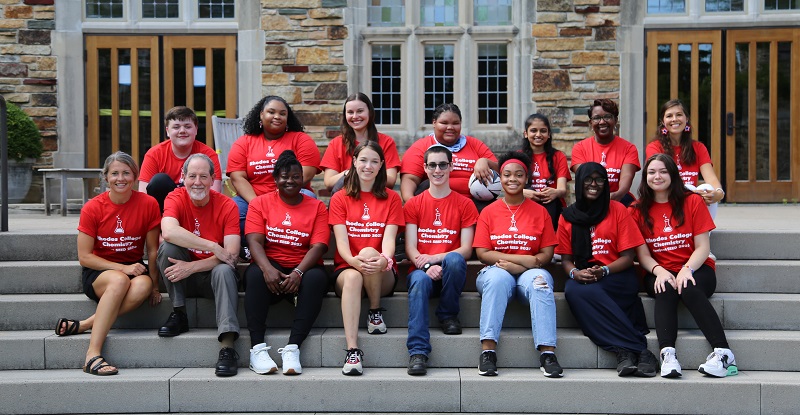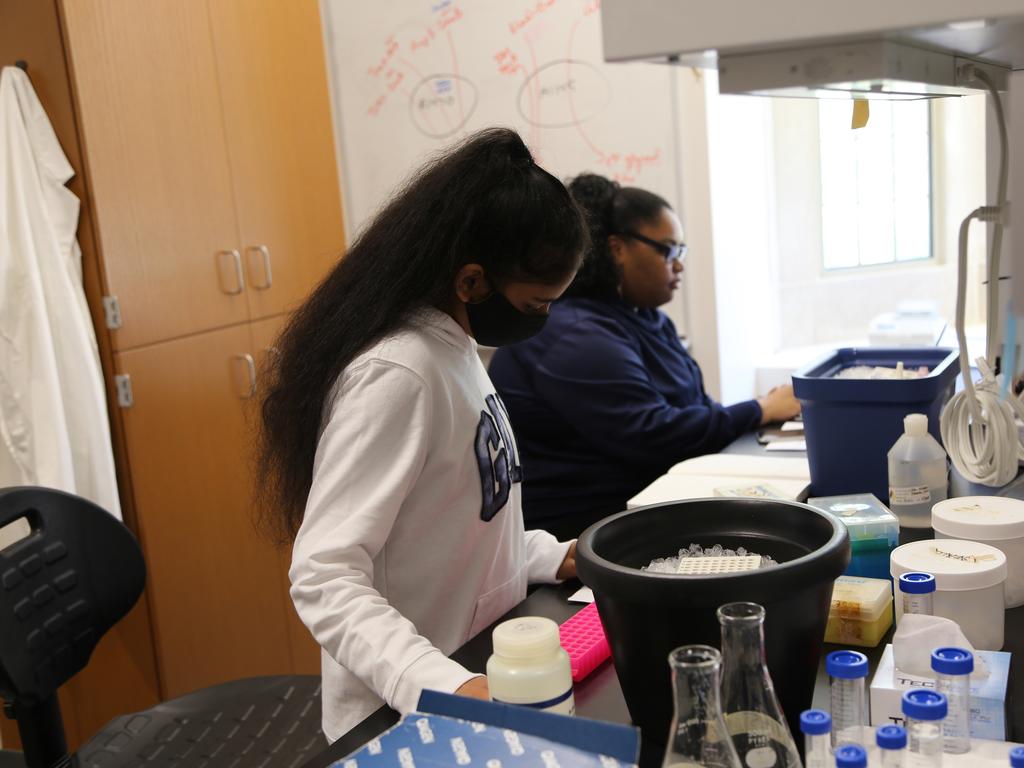Eight talented local high school students have been on campus this summer participating in the American Chemical Society’s Project SEED program hosted by Rhodes College’s Department of Chemistry. The students are conducting meaningful research under the supervision of Rhodes faculty within the chemistry department and biochemistry and molecular biology program. Karen Mosley, instrumentation technician and chemical safety officer, is the coordinator.
The eight-week (June 6-July 29) paid internship provides advanced research and growth opportunities for high school students with diverse identities and socioeconomic backgrounds. The students represent Compass Midtown, Cordova High, East High, Melrose High, and Margolin Hebrew Academy.
“The students are working on projects that span scientific research disciplines, including designing and synthesizing new antibacterial compounds using advanced techniques,” says Mosley. “While some of the students are using molecular biology techniques to describe the mechanism involved in growth and cell division in filamentous fungi, others are exploring how proteins interact in the growth and reproduction of microorganisms. We even have students working to replace a chemical equilibrium experiment that generates environmentally hazardous waste with a Green Chemistry experiment to be implemented in first-year chemistry labs.”
“I have learned a lot about college life and college academics,” says Gwen Wheeling of Compass Midtown. “We’ve only learned general chemistry in high school, and I had no knowledge of organic chemistry. Now I feel like I know a lot. I want to go to college and get my master’s in zoology and be a zoologist.”
“It’s been very good working with Rhodes students, because they tell about their experiences and share their knowledge,” says Najmo Mohammed, also of Compass Midtown.
“It is providing me with advanced research opportunities and allows me to learn how to think in a research setting,” adds Etai Rovner of Margolin Hebrew Academy.
Project SEED participants are expected to complete an assigned research project while being mentored by career scientists and to give oral presentations of their work. “They are given access to years of knowledge and experience in college prep and career development. At the end of the eight-week program, the students should have resources and contacts that they can access when deciding what kind of impact they want to make on the world,” says Mosley. “Ultimately, the goal is to expose the students to a new way of thinking about their future.”

In addition to Mosley, Profs. Larryn Peterson, Loretta Jackson-Hayes, and Terry Hill are teaching Project SEED participants in the labs on campus. Current Rhodes students—Gabriella Krisanic ’23 (biochemistry and molecular biology), Sarah Ginsberg ’23 (chemistry) and Emma Gruss ’24 (biochemistry and molecular biology)—also are working in labs, mentoring the participants.
“It’s been really fun interacting with the Rhodes College students, and it’s really nice to see what future scientists look like,” says Billy Smith of East High School.
Zoe Scott ’21, who majored in chemistry at Rhodes and is now working in the Office of Admission, gave Project SEED participants a workshop on applying to college. The program also includes information on careers in science and on writing scientific papers.
When asked what it has been like working with the Project SEED participants, says Gruss, “It has been very rewarding. They are excellent students themselves and are very empowered and motivated to work.”
To learn more about the Department of Chemistry at Rhodes, visit here.
